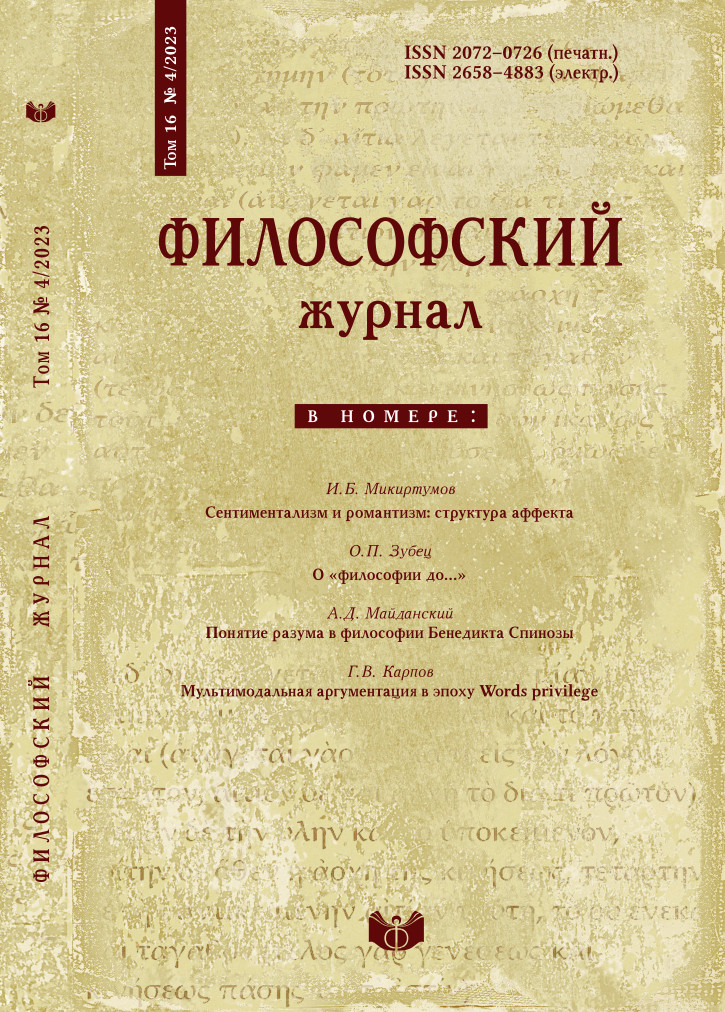Feminist interpretations of Hegel’s slave and master dialectic
DOI:
https://doi.org/10.21146/2072-0726-2023-16-4-88-105Keywords:
Hegel, slave and master, Antigone, woman, feminism, de Beauvoir, Irigaray, ButlerAbstract
The article analyzes the reception of Hegel’s philosophy in feminist theory on the example of the concepts of Simone de Beauvoir, Luce Irigaray, and Judith Butler. The first part of the article examines Hegel’s teaching on the role of women in the family, identifies the place of the feminine in Hegel’s system and analyzes the Hegelian interpretation of Sophocle’s “Antigone”. The second part of the article presents an interpretation of Simone de Beauvoir. I affirm that the oppositions “woman – man” and “the Other – I” are heirs to the “slave – master” opposition. The third part of the article discusses Irigaray’s interpretation of Hegel’s Antigone. It is argued that Antigone in Irigaray’s view goes beyond the dialectic of slave and master, and therefore becomes a symbol of anti-woman. The fourth part of the article examines the paradox of bodily submission during the transition to the Unhappy Consciousness by Judith Butler. The historical and philosophical study of influence is accompanied by a conceptual analysis of the problems that arise in the interpretation of feminist versions of the slave – master dialectic. At the end of the article, I briefly formulate the problems identified during the study and present possible solutions.






